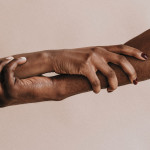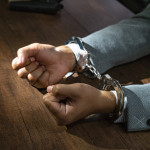HIV might no longer be a death sentence, but today it is often a prison sentence. In the Deep South, people of color, especially young black gay and bisexual men, are at the highest risk of incarceration and at the highest risk of acquiring HIV. Both represent a terrible injustice, but when you add HIV criminalization, it becomes an injustice of monumental proportion.
HIV criminalization is the wrongful use of one’s HIV status in a criminal prosecution. It dates back to an earlier time in the epidemic, but in recent years has mushroomed into a huge problem, one of the drivers of today’s epidemic. Most southern states, like Louisiana, where I am from, passed HIV-specific criminal statutes, in the late 80s and 90s to prosecute people with HIV for non-disclosure of their HIV status before having sex or, perceived HIV exposure or transmission. The legislators believed such laws would reduce transmission, but instead they have done
more harm than good, with evidence demonstrating how they drive stigma and discourage people at risk from getting tested or treated.
CDC data shows that black gay and bisexual men continue to comprise the largest single category of people living with HIV; many are already disproportionately criminalized. Coming from socially and politically vulnerable communities in the South, many of us face multiple intersections of stigma and discrimination, a fraught history with public health and police, even before HIV.

I consider HIV criminalization another risk factor affecting all gay and bisexual men (larger percentage of black gay and bisexual men with HIV) within our sexual networks.
I found out the hard way when I was convicted under Louisiana’s so- called “Intentional Exposure to AIDS Virus” statute, and served six months in a state prison, even though it was a consensual sexual relationship and it was never determined that I had transmitted HIV to anyone. Now the risk of a misunderstanding leaves every person with HIV just one disgruntled partner away from finding himself in a courtroom. A minor infraction of the law while positive could lead to a felony conviction, a lengthy prison sentence, public shaming, and registration as a sex offender.
My situation is not rare; there has been hundreds of reported and unreported prosecutions in the South and all over the U.S. with situations similar to mine. Of course, each personal experience is different, but one thing is for sure is the profoundly stigmatizing effect of HIV criminalization and the harm it can do to our black community, our families and our future.
For information on HIV Criminalization in any specific state or if you are interested in advancing advocacy for criminalization reform in your state contact me at info@seroproject.com or visit our
website.
This post also was published on the HIV PJA.









1 Comment
1 Comment